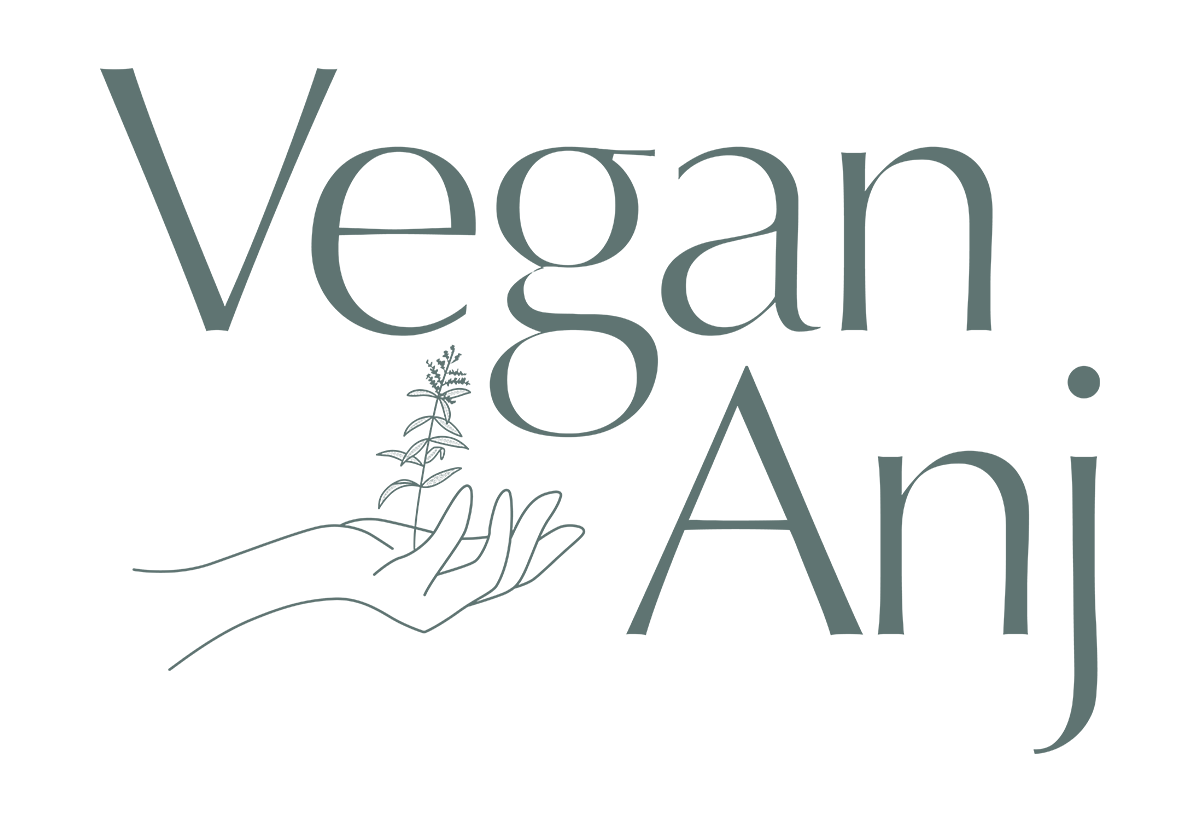Plant-Based Nutrition Certificate Review: T. Colin Campbell Course
I’ve always been fascinated by food science and nutrition, and that interest only deepened when I went vegan five years ago. I was (and continue to be) presented with the question, “where do you get your protein?” and although I’ve always confidently responded by sharing that protein very much comes from plant-based food sources, I felt the desire earlier this year to deepen my understanding of how food impacts the body – from the gut, to the brain, to disease prevention and creation – so I could not only apply those learnings to the content in this blog, but to my own life, and the lives of others. So I began researching the best programs out there, and am excited to share my full review of the T. Colin Campbell Plant-Based Nutrition Certificate program that I completed earlier this year.
The TL;DR – I highly recommend this course as I truly believe it’s the best program out there for plant-based nutrition studies. It’s a great foundation for someone looking for better understand fundamental nutrition principles, the food-disease connection, and how nutrition affects us on an individual, collective and planetary level – all within a whole food, plant-based framework.
If you’d like to try out their Whole Food Plant-Based Cooking Courses (they offer one for beginners, and one focused on meal-planning) they’re offering $100 off with code COOK100 at checkout. And, finally, you can enroll in their Food & Sustainability Certificate program for $75 off with code FOOD75.

About the T. Colin Campbell Center for Nutrition Studies
Nutrition Studies was founded by T. Colin Campbell, who is an endowed chair at Cornell University and the lead scientist of The China Study, which stands as one of the most comprehensive nutritional studies to date. The study’s findings – of 65 counties in rural China – ultimately showed that diets high in plant-based food and low in fat produced lower rates of the world’s most common diseases: cancer, diabetes, and heart disease.
In addition to being created by one of the fathers of plant-based nutrition, I was very impressed by the caliber of other medical professionals that contributed to and are featured in this course. The lineup includes: Dr. Caldwell Esselstyn, founder of the Esselstyn Heart Disease Program at Cleveland Clinic; Dr. Dean Ornish, founder of the Preventive Medicine Research Institute; Dr. Neal Barnard, founder of Physicians Committee of Responsible Medicine and Professor at George Washington School of Medicine; Dr. Jackie Busse, Pediatrician at Sutter Health; Dr. Michelle Loy of Weill Cornell Medicine, and many, many more highly-respected and accomplished medical professionals.
Below I’ll address the common questions I’ve received about my experience with the Plant-Based Nutrition Certificate and the various course elements. If you’re interested more in the plant-based cooking side of things, T. Colin Campbell’s Nutrition Studies also offers Plant-Based Cooking Courses, as well, including Whole Food Plant-Based Cooking: Beginners Course and Whole Food Plant-Based Cooking: Meal Planning Made Easy. I haven’t taken the cooking courses, myself, but intend to in the future given the excellent experience I had with the nutrition certificate program.
Note that there are affiliate links in this article which may result in my earning a small commission on any sales. I only engage with organizations I’ve personally vetted. These collaborations allow me to run this blog and keep my in-depth content free of charge for readers like you who want to learn more about plant-based living 🙂

Who can enroll in the T. Colin Campbell Plant-Based Nutrition Certificate program?
Another great thing about this program is that there are no pre-requesites to enroll. While it’s accredited for continuing education credits (CEs) for medical professionals, nutritionists and dieticians, it’s also frequently taken by health coaches, fitness trainers, professional chefs, home cooks, and anyone seeking to better understand the science behind a plant-based diet as well as the respective roles that nutrition plays in our health, in addition to the prevention and development of disease.
How many weeks does it take to complete the program?
The program is self-paced and is completed within 6-8 weeks. I went with the 8-week track, and spent about 6-7 hours per week on the course – so I found the time commitment to be quite manageable. I viewed it as a a “slowly accelerated” program, in that I had access to a lot of information within a relatively short time frame, which personally helped me to stay engaged and focused on the material. But completing the course in an 8-week time frame felt very attainable, and I easily could have done it in 6 weeks, as well.
How is the course structured and what does it cover?
T. Colin Campbell’s Plant-Based Nutrition course is divided into three sections:
- Nutrition and Society
- This section covers important foundational knowledge on nutrition science such as critical thinking skills, the scientific method, analyzing health claims, nutrient classifications, the gut microbiome, food policy, and more.
- Nutrition and Chronic Disease
- In this section we learned about the research and science behind cancer prevention and treatment, heart disease and diabetes prevention and reversal, neurological conditions and brain health, autoimmune disease, mental health, and how food and nutrition plays a significant role within chronic disease and our overall health.
- Plant-Based in Practice
- This section focused on practical applications of nutrition through the lifespan: from infancy, to childhood, teenagehood, adulthood, pregnancy, breastfeeding, and advanced years. It also covers the science of whole food plant-based diets and menstrual cycles, perimenopause, and aging with vitality. There is also a fitness and sports nutrition section, as well as a section that explores how our food choices have an impact on collective global health and the environment. They also go into topics like “the pleasure trap” which I found very interesting, in addition to the behavioral side of nutrition.
How much does the T. Colin Campbell Plant-Based Nutrition Certificate cost?
The course costs $949 and also has payment plans available. I think that the price is fair, given how in-depth and well-structured the course is, and the incredible medical and nutrition professionals you have the opportunity to learn from.

My review: Here’s what I loved about T. Colin Campbell’s Plant-Based Nutrition Certificate
- Variety and caliber of respected healthcare and nutrition professionals
- This was a huge selling point for me. I really felt like I was learning from the best of the best – from doctors, to dieticians, to psychologists, to leaders in environmental science.
- Structure and organization of course material
- The way in which this course is structured is really great; you get a great primer on nutrition and food science in the first section, an understanding of the role of food in disease creation and prevention in the second section, and it wraps up with a final section on how to apply these learnings in the real world. I thought that the organization of the material and the way it was presented through a lot of video lectures made it very comprehensive, yet graspable to the average person that doesn’t have a science or biology background (i.e., yours truly).
- Approachability of the more science-heavy content
- The way the course information is presented through video content *and* written content really makes it super digestible (pun intended). I felt really engaged with the content and I was learning, even in the more “sciency” sections that I initially thought I’d be intimidated by. It also really helps when you’re genuinely interested in the information being presented, and when you have a connection to what’s being taught.
- Holistic nutrition philosophy
- I appreciated how thorough this course was in covering foundational nutrition science, in addition to focusing on the most common chronic disease, and the symphony of factors that can either create health or deteriorate it. This also includes important topics around the connection between food and mental health, which I found to be one of the most valuable and interesting parts of this course.
- Easy quizzes
- The handful of quizzes in each section helped to reinforce the information presented, but they were fairly simple and not stressful or intimidating at all (for all of my folks out there that hate test-taking like I do, this course is for you)!
- Downloadable full course transcripts that you can keep on hand.
- This was particularly helpful to me, since we were given a lot of material on a broad range of subjects. I appreciated being able to download all of the course information so I could go back to re-read and reference the material.
Do you have any other questions about T. Colin Campbell’s Plant-Based Nutrition Certificate?
If so, drop me a line in the comments section below and I’d be happy to respond or share any other insights about my experience.
And, as mentioned earlier, I encourage folks to check out their cooking courses, as well: Whole Food Plant-Based Cooking: Beginners Course and Whole Food Plant-Based Cooking: Meal Planning Made Easy.
Discount codes through January 10, 2025:
- WINTER20 for 20% off the Plant-Based Nutrition Certificate
- COOK100 for $100 off either of the Whole Food Plant-Based Cooking Courses
- FOOD75 for $75 off the Food & Sustainability Certificate
If you’re looking for some whole food plant-based cooking inspiration, be sure to check out some of my most popular recipes like this simple air fryer granola, berry crumble, spicy fusilli, superfood pesto or vegan romesco sauce.
Note that there are affiliate links in this article that will enable you to get a discount while I’ll earn a commission on any sales. I only work with brands and companies that I have researched and personally vetted. These collaborations allow me to run this blog and keep my in-depth content free of charge and ad-free for readers like you who want to learn more about vegan living and eating 🙂









I’ve been looking into this program and appreciate your review!
I’m so glad you found it helpful, Nicole! If you have any other questions about the program, feel free to reach out 🙂